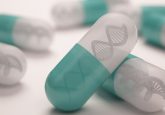Sensitivity and specificity; proteomic technique shows promise in breast cancer detection

Clinical data from a recent study presented at The American Society of Oncology’s 2014 Breast Cancer Symposium, from September 4-6th, implies that the addition of antibodies to a diagnostic panel of serum protein biomarkers can improve the accuracy of breast cancer detection.
In the study carried out by Provista Diagnostics, Inc. (NY, USA), serum protein biomarkers, with a known association to breast cancer, were measured in over 163 serum samples from women possessing either breast cancer or benign breast conditions. In addition, 28 autoantibodies, also linked to cancer, were analysed in 31 of the patients.
The results of the research illustrated that the addition of autoantibodies to a panel of serum protein biomarkers increased accuracy. Moreover, data also suggested that serum protein biomarkers could be used to differentiate between invasive breast cancer and benign breast conditions in menopausal women, it should be noted that these results were reasonable and non-clinically meaningful.
David Reese, President and Chief Executive Officer of Provista, remarked that: “Accurate clinical diagnosis of breast cancer depends on the effective use of complementary technologies in conjunction with standard of care, such as imaging.”
Biomarkers are often used to augment detection of various cancers; however, definitive biomarkers for breast cancer still remain undiscovered. According to the American Cancer Society, in the USA alone an estimated 232,340 women were diagnosed with breast cancer in 2013; during that year around 40,000 deaths were expected to be attributed to the disease. Figures such as these highlight the importance of improving breast cancer detection.
Discovery of suitable biomarkers is a vital component in the development of more accurate breast cancer diagnosis, as currently approximately 20% of all breast cancer cases are missed by screening mammography.
Reese believes that Provistas “proteomics approach, which combines the sensitivity of autoantibodies with the specificity of known serum protein biomarkers along with standard-of-care imaging, may reduce the number of missed actionable breast cancers while avoiding the stress and added diagnostic costs of false negative reports.”
Source: Provista Diagnostics, Inc. Announces Key Data Presented at the American Society of Clinical Oncologist Breast 2014 Annual Meeting; National Cancer Institute at the National Institutes of Health, Mammograms fact sheet; American Cancer Society, Breast Cancer Facts & Figures.





